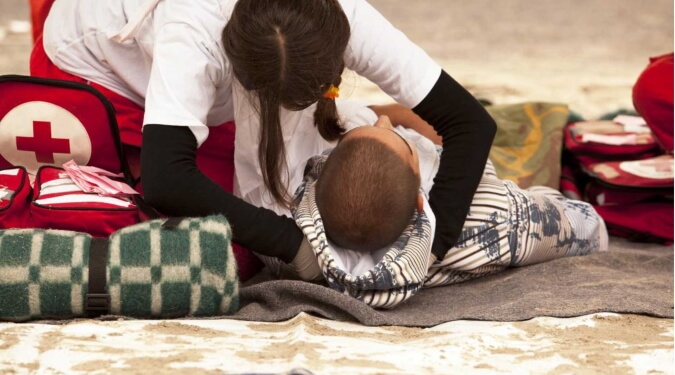
First Aid Qualifications for Close Protection Operatives: A Comprehensive Guide
- Posted by Phoenix
Close protection operatives require a high level of training and expertise to perform their duties effectively. One important aspect of their training is first aid, as they may be required to provide immediate medical assistance in emergency situations. In this blog, we will discuss the different first aid qualifications available for close protection operatives and their advantages and disadvantages.
Level 3 (RQF/QCF) First Aid at Work
Advantages:
- This qualification is widely recognized and respected in the industry
- It covers a comprehensive range of first aid skills and knowledge
- The training covers both theoretical and practical elements, allowing for hands-on experience
Disadvantages:
- It is a lengthy course, lasting 3 days
- The training may not be specific enough for close protection operatives and their specific requirements
Level 3 (RQF/QCF) First Person on Scene – FPOS
Advantages:
- This course focuses specifically on emergency response, making it ideal for close protection operatives
- It covers a range of life-saving skills and techniques that are applicable in emergency situations
Disadvantages:
- The course may not cover all the necessary first aid skills required by close protection operatives
Level 3 (RQF/QCF) First Response Emergency Care – FREC 3
Advantages:
- This qualification covers a wide range of emergency care skills, including advanced life support
- The training is suitable for close protection operatives who may encounter serious or life-threatening emergencies
Disadvantages:
- The course is intensive and requires a significant amount of time and effort to complete
- It may not be suitable for all close protection operatives, as it focuses on advanced emergency care
Level 3 (RQF) First Aid Response
Advantages:
- This course provides a good balance of theoretical and practical training, allowing for hands-on experience
- It covers a range of first aid skills and techniques that are suitable for close protection operatives
Disadvantages:
- The qualification may not be as widely recognised or respected as other first aid qualifications
- It may not cover all the necessary skills required by close protection operatives in emergency situations for hostile environments, and is best suited to corporate and executive close protection
This is the course opted for on the Phoenix Close Protection Course which, has the above advantages, but coupled with the Emergency Paediatric First Aid and Basic Life Support on the Phoenix Close Protection Course, this however has added benefits that other providers are unable to offer, which means that close protection operatives are at an advantage due to having:
- Knowledge and skills to respond quickly and effectively in case of a pediatric emergency.
- The ability to assess and manage emergencies related to children, such as choking, bleeding, fractures, and seizures.
- Increased confidence in handling emergencies, leading to better decision-making and improved outcomes.
- Improved safety of children under their care and protection, as well as reduced potential for legal liability.
- Demonstration of a commitment to the welfare of children and a professional approach to the protection of minors.
Further Support in Making Your Decision!
Thank you for reading this blog on first aid training for close protection operatives. If you would like to find out more information, please don’t hesitate to reach out to Phoenix on 08001244616 or via our contact page. Our team is always ready to assist you in any way possible. Stay safe!








